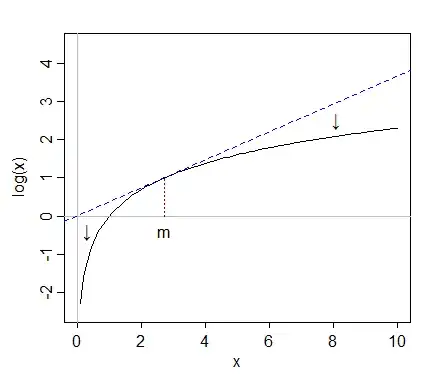In the PRML chapter 11, The Metropolis-Hasting algorithm,
For a sampler with Gaussian distribution as proposal distribution.
The original distribution is correlated multivariate Gaussian distribution, with standard deviations $\sigma_{min}$ and $\sigma_{max}$
The transition probability is shown as below: $q(z'|z) = \mathcal{N}(z, \rho^2I)$
Because the proposed distribution is symmetric, so $q(z'|z) = q(z|z')$
Using Metropolis-hastings algorithm, the accept rate is
$A(z'|z)= min \left(1, \frac{\pi(z')q(z|z')}{\pi(z)q(z'|z)} \right)$
After cancel out the transition probability, we have
$A(z'|z)= min \left(1, \frac{\pi(z')}{\pi(z)} \right)$
It shown that the accept rate depends on the location of two points in the original distribution.
But I don't know how to include $\sigma_{max}$ or $\sigma_{min}$ in this equation.
And according to the article, the number of steps seperating states that are independent is order of $(\sigma_{max}/\sigma_{min})^2 $
How to generate this conclusion?
